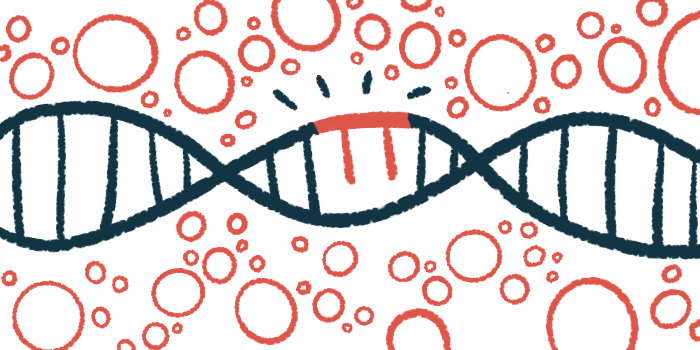Potential Duchenne gene therapy RGX-202 on fast track
FDA designation comes as AFFINITY DUCHENNE study is underway
Written by |

The U.S. Food and Drug Administration (FDA) has granted fast track designation to RGX-202, a one-time gene therapy for Duchenne muscular dystrophy (DMD) that is in early clinical trials.
The FDA gives this designation to investigational treatments that have the potential to address unmet clinical care needs for serious diseases. The designation qualifies Regenxbio, the therapy’s developer, for more frequent communications with the FDA throughout the drug development process. It also opens the possibility of earning priority review from the FDA.
“We look forward to continuing to work closely with the FDA and the Duchenne community as we advance a highly differentiated product candidate developed with the potential to make a meaningful difference for patients,” Kenneth Mills, president and CEO of Regenxbio, said in a press release.
“We are pleased that the FDA has granted fast track designation for RGX-202,” said Debra Miller, founder and CEO of the nonprofit CureDuchenne. “Accelerating the development of medicines for Duchenne, especially potential one-time gene therapies like RGX-202, is critical for this community.”
DMD is caused by mutations that disrupt the production of dystrophin, a protein that helps to prevent wear-and-tear damage in muscle cells. RGX-202 is designed to deliver a copy of a gene that provides instructions to make microdystrophin — a shortened, but functional version of the long dystrophin protein — to muscle cells. The experimental therapy delivers its genetic payload using a viral vector called adeno-associated virus 8 (AAV8).
Regenxbio is currently running a Phase 1/2 study called AFFINITY DUCHENNE (NCT05693142) to test the experimental gene therapy in DMD patients. The study is expected to enroll 18 boys with DMD, ages 4 to 11, who are able to walk without an aid and have a disease-causing mutation in exon 18 or higher.
All participants will receive a single infusion of RGX-202 at one of two doses. The study’s main goal is to evaluate the safety of the treatment out to one year of follow-up; measures of microdystrophin expression and physical function tests also will be assessed. Exons are the DNA bits containing information to make proteins.
Recruitment in the AFFINITY DUCHENNE study is is ongoing at centers in Little Rock, Arkansas, and Chicago.
“We look forward to reporting initial data from our clinical trial of RGX-202 in the second half of this year,” Mills said.
Regenxbio notes this trial is using RGX-202 gene therapy product that was manufactured with the same process that the company hopes to use for making commercial therapy, if it is approved eventually as a treatment.
“Fast Track designation, along with our capabilities to conduct our clinical trials using commercial-scale cGMP [current good manufacturing practice] material, will further support the efficient development of RGX-202 from clinic to commercial readiness,” Mills said.
Regenxbio also is conducting a separate clinical trial called AFFINITY BEYOND (NCT05683379) that is screening for antibodies against the AAV8 vector in children with DMD ages 11 and younger. That study is currently recruiting participants at a site in Atlanta.






